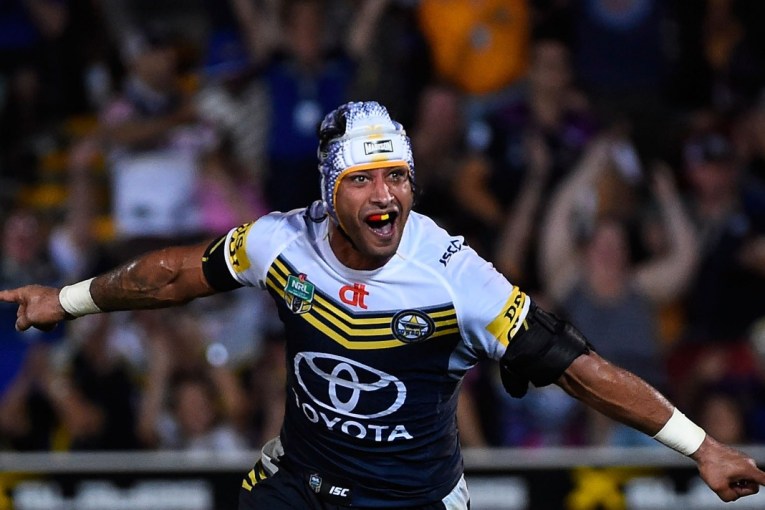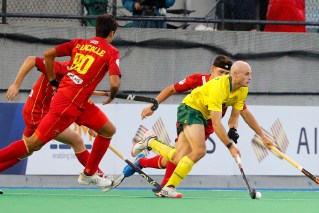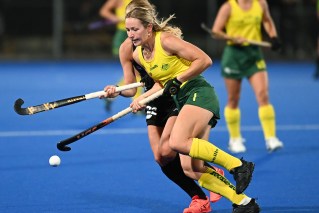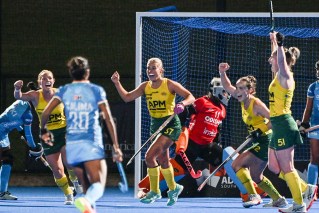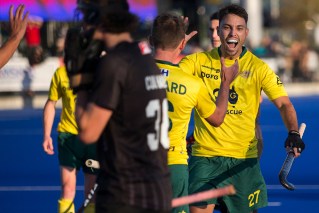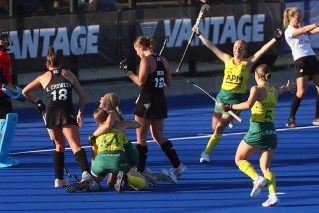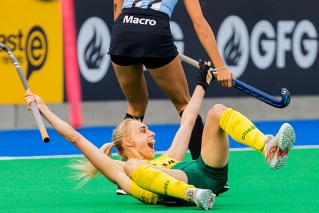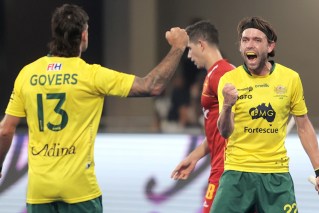Hockey hurts, but don’t let injuries get you down
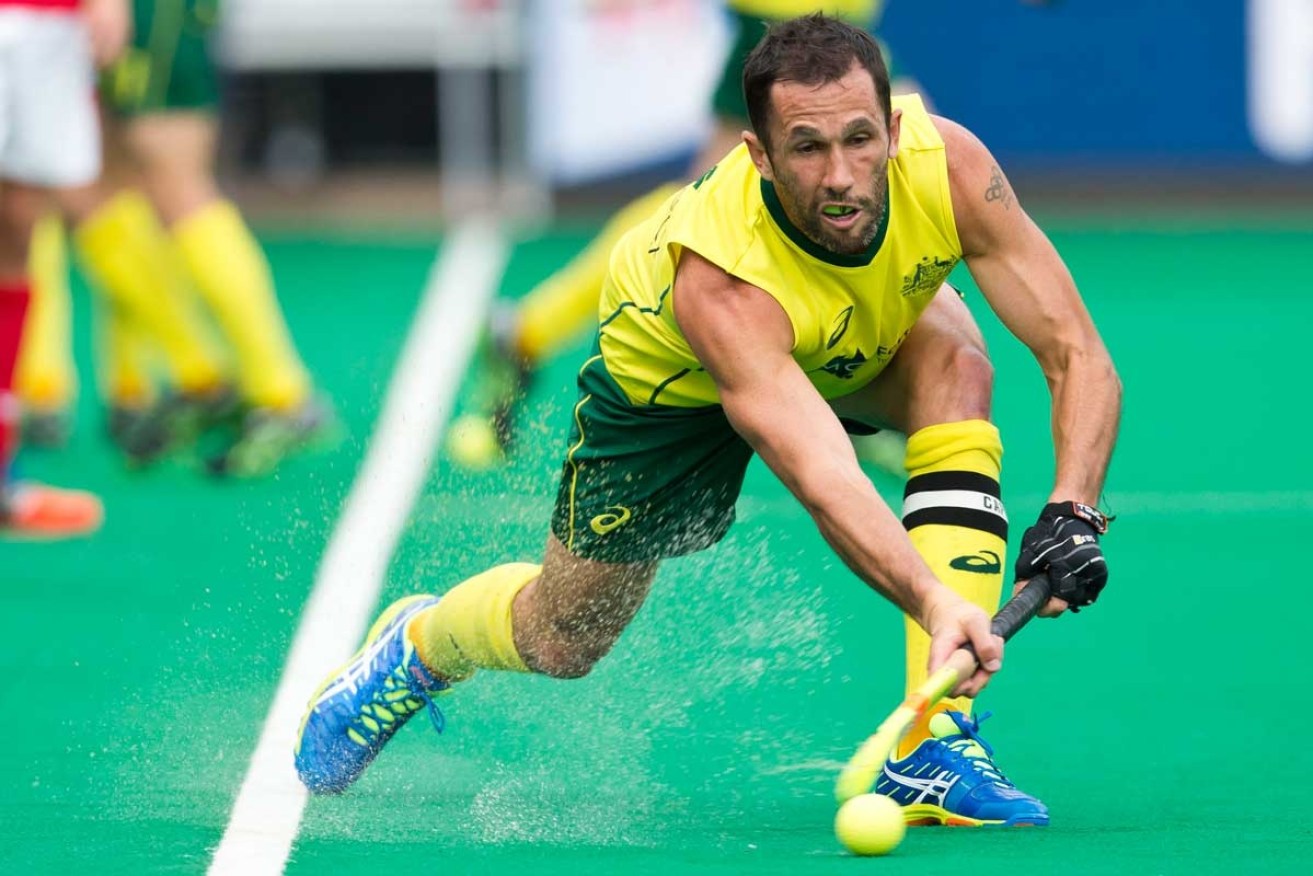
It’s winter. I’m in Melbourne. And I’m injured.
The familiar grab at the back of my leg sent me to the sidelines about a month ago, once again destined to line the pockets of physiotherapists across the city.
It’s not the first time it’s happened, but in the grand scheme of things, it’s not that bad.
• The Kookaburras tale of brotherly love
• The sportsman leading the charge on diversity
• Men, women and hockey’s level playing field
For starters, I’m certainly no Kookaburra.
I would consider myself a weekend hack – and that’s being generous.
On the other hand, Kookaburras captain Mark Knowles, well, let’s just let his injury list speak for itself…
“My biggest problem over my career have been my ankles,” he said.
“I broke my ankle in 2003 – the day I was named in the national team for the first time.
“I was out for just over four months.
“My first training session back for Australia, with four minutes to go, I broke my ankle again.”
That was Knowles’ first year living in Perth, away from family and friends. He was 19.
Then there was knee surgery (“just a clean out”) in 2005, foot ligament damage in 2006, hernia surgery in 2007, and another ankle injury in 2010.
And they’re just the highlights.
Knowles said he has played 265 games and missed about 135-140.
It’s enough to make a physio blush.
@knowlesy09 hitting one handed Tommas for fun! #whodoesthat pic.twitter.com/OA694sSKrl
— David Guest (@DavidGuest12) August 21, 2015
Injury blues
You would assume the worst thing is the rehab, right? The stretching, the appointments, the setbacks.
Not for Knowles. He confessed that he doesn’t mind the rehab side of things. He enjoys putting in the work. It’s the mental aspect, watching his team-mates run out and achieve success that challenges him the most.
“I’ve been someone who has always loved training hard and doing extra and stuff, it’s more just not playing,” he said.
The good news is there is something that lessens that game envy, but our younger readers may not like to hear it.
“It’s a bit easier now when you’re injured and you’ve got a young family,” Knowles said.
“It gives you a bit more time to be home with them so that’s the light at the end of the tunnel.”
Running, Gym, Hockey, Coffee, Playtime #perfectmorning pic.twitter.com/ZHOePPVwSD
— Mark Knowles (@knowlesy09) August 24, 2015
Getting back on the park
Knowles said he has overcome the insecurity he suffered when he was injured in his younger days – that fear of letting others take his place.
“Now it’s a bit more about just being careful because you don’t want these things to linger on.
“When you get injured, I haven’t tried to come back too soon.”
As for me, I’ve run the laps at training, seen the physios, completed the repetitive stretches and stood on the sidelines drinking water (mostly), while my team went out and played.
I was feeling ready to hit the field next week.
But then Knowles stressed the importance of maintaining your diet while injured:
“You don’t want to be behind the eight ball when you come back.”
Gulp. *Puts down meat pie*
Only smile from the session #rehab #kookaburras pic.twitter.com/pFXIdCF7Sq
— Mark Knowles (@knowlesy09) August 17, 2015
Five tips for the injury-prone from Mark Knowles
1. Don’t rush
“Make sure you are right when you come back.”
2. See the opportunity
“I’ve used getting injured as an area to improve something else. When I broke my ankle and did my foot, I used it as an opportunity to do more upper body work, get stronger on the ball with my core.”
3. Change is as good as a holiday
“Use it as a freshen up. I’m fresh and firing when I come back or I’m better in a different area.
“That was something I learnt from guys when I came into the national squad.”
4. Have faith
“For most people I think especially at my level, my hockey knowledge and hockey skills aren’t going to go anywhere but you find it hard to think about that in that first week when you come back and you are not at your best. It will come back.”
5. Eat right
“When you are injured, one of the most important things is your diet.
“For people at a club level, they think they can let the foot up or not be as disciplined with their food.
“I think that’s really important just to be careful with your diet when you are injured.”
Tim Doutré tweets here: @TimDoutre
